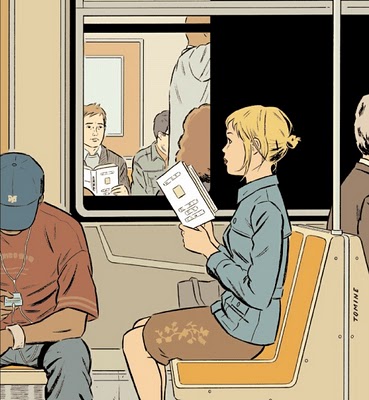This week I embrace my “consequential strangers”
Down the road from my place is one of those cheap nail bars with the vibrating vinyl chairs and wall-mounted TVs that’s always screening Dr Phil. I’m not a fancy nail person; I tear or chew mine. But one of my Favourite Things To Do In The Whole World is to go in for a $25 pedi, merely to take part in the funny human vibe of this place.
I love it. There you have Lena and her extended family from Vietnam buzzing with the efficiency of drone bees and bossing around the well-heeled, alpha-female PR executives and eastern suburbs wives who frequent the joint, telling them to choose their polish colour faster and berating them for putting their shoes on too early.
Gorgeously, it’s a social contract that suits everyone. There’s no more cheerful place in the ‘hood on a Saturday morning. Nor a more intimate one. Oh, the stories that are shared over at the acrylic bar!
And therein lies the appeal of the “consequential stranger”. The kid who makes you coffee, the woman in accounts, the guy at the vegetable shop who goes out back to get you a zucchini after they’ve packed up for the night – these people play an increasingly nourishing role in our lives. Our close relationships are not what they were. Marriage is no longer forever and busy lives have watered down our connections with family and friends. And so we’re seeking out different kinds of intimacy. Perhaps even a little experimentally.
The New York Times recently ran a trend feature on Manhattanites who buy apartments for their views into others’ lives (on the street, in apartments across the way). Creepy? Not really. Sociologists pointed out that connecting with others as they go about their routines is good for our wellbeing. It makes us feel assured, less lonely and that we’re all “in it together”.
In Consequential Strangers: The Power of People Who Don’t Seem to Matter…But Really Do, the authors argue that when we reach out to people outside our circle, we learn more and get more excited about life. They did a study showing two-thirds of Christmas cards these days are sent to relative strangers – the plumber, the kids’ teachers, the milkman – and highlights something I’ve certainly noticed: “We disclose to people at the gym. The old rules of disclosure were, we disclose after we have a certain amount of history.” Now, not so much.
I get it. I seek out these kind of connections, but often wonder why. I hate shopping. But I like shopping for shoes because of the way the attendant fusses with fitting you, sometimes bringing out that slidy foot measurer thing. In that up-close-and-personal moment (feet are so intimate, don’t you find?), a sweet connection occurs and I always wind up having a great chat. Since I was a kid I’ve had this thing for asking strangers how they’re finding the book they’re reading. Which no doubt will have you avoiding me on the bus. But I swear, everyone I’ve pounced on has risen to the odd little occasion, mostly flattered to be asked for their opinion.
On the flipside, strangers (a guy from yoga, a mature-age student who sat at the front of my Heidegger tutorial at uni) have often emerged from nowhere to help me (with a life-changing book or unsolicited advice) at my darkest hours.
As an experiment this week, I took a good look at what goes on when we connect with these kind of strangers. I chatted with an old guy I see at the pool about the sadness of Autumn, had a glass of wine with the woman across the way in my apartment block who I run into at the clothes’ line and cried with the girl in the chemist who shared her breakup story with me as she filled my prescription.
Each interaction left me thoroughly uplifted. Why? Well, there’s the thrill of pushing the social envelope. It’s risky putting your heart and pride out on such a limb, but the reward is deep and refreshing when you’re caught by someone who simply sees and appreciates your humanity. There’s also, when connecting with a stranger, the freedom of being the person you want to be, not the person that a history of (gnarly? reactionary?) interactions dictates you to be. We can be surprisingly kind, heartfelt and raw with strangers because we don’t connect from a rut.


